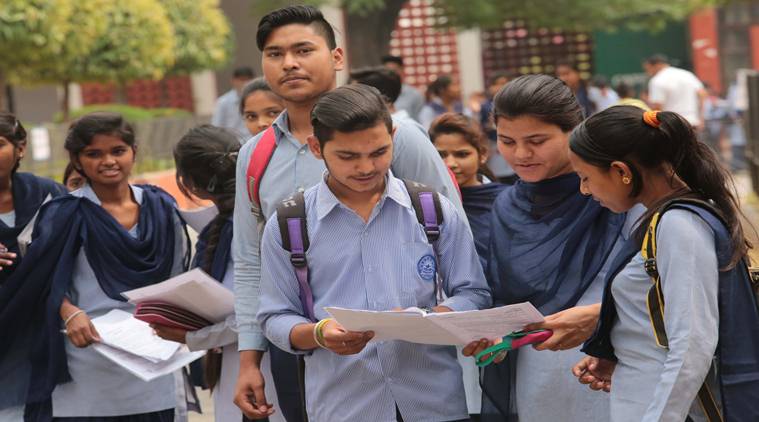
The NCERT’s new history textbook for Class 10 students has three fewer chapters. Among those deleted is one on the rise of nationalism in the Indo-China region, another that narrates the history of the contemporary world through novels, and a third on the development of cities across the world.
‘India and the Contemporary World – II’, a book that had 200 pages, is now 72 pages thinner. The decision is part of the curriculum rationalisation exercise undertaken by NCERT, at HRD Minister Prakash Javadekar’s behest, to reduce the curriculum “burden” on students.
This is the second textbook review undertaken under the incumbent government. The revised textbooks are meant for the new academic session that began this month. In 2017, NCERT made 1,334 changes, which included additions, correction and data update in 182 textbooks.
The old Class 10 history textbook had eight chapters, divided into three sections or themes. Schools had the freedom to assess students on any five of the eight chapters — two from the section titled ‘Events and Processes’ and two from ‘Livelihoods, Economies and Societies’ and any one from the theme ‘Everyday life, Culture and Politics’.
NCERT officials, who spoke on the condition of anonymity, claimed the arrangement of providing a choice to students and teachers created “confusion” when it came to assessment.
“The issue of who decides which of these chapters are to be taught remained uncertain. Moreover, since the question paper for social science is common, there was confusion among students, teachers and even Boards of examination. So in pedagogical interest, it was decided to retain the chapters which reflect the defining themes of the textbook and students will now be assessed on only those (chapters),” said an NCERT official, adding that they can still be accessed online in digital format.
According to NCERT sources, this was also the reason why three chapters were also dropped from the Class 9 history textbook.
The Indian Express first reported on March 18 that three chapters were deleted from the Class 9 book. One of them, on how social movements influenced how we dressed, illustrated caste conflict through the struggles of the so-called ‘lower caste’ Nadar women of Travancore, who were forced to keep their upper bodies uncovered. The second was on the history of cricket in India and its connection to the politics of caste, region and community. The third focused on the growth of capitalism and how colonialism altered the lives of peasants and farmers.
According to former NCERT chairman Krishna Kumar, during whose term the Class 10 history textbook was introduced, students were provided a choice as part of a new approach to education under the National Curriculum Framework (NCR) of 2005.
“The new approach, according to NCF of 2005, is that the textbook need not be tied to the exam, that it is a resource for creating greater awareness and curiosity about a subject. Hence the idea that the whole textbook need not be the basis of examination and that schools and children should be free to select portions on which they are examined, whereas other portions can be simply for arousing greater interest,” he said.
As for the confusion among teachers and students, cited by NCERT officials, Kumar said: “If you go by the approach of the NCF, then questions should be set on all chapters and children can select the ones which they have studied. So where is the confusion?”
The Class 10 chapter titled ‘The Nationalist Movement in Indo-China’ — one of three chapters under the theme ‘Events and Processes’ — dealt with the emergence of nationalism in the Indo-China region (especially Vietnam), how it was shaped by colonialism and the role of women in the anti-imperialist movement in Vietnam.
The chapter ‘Work life and leisure’ looked at the history of the growth of cities like London and Bombay (now Mumbai) as well as those who are jobless or make a living by vending and hawking on the streets, living in makeshift shelters and crowded tenements. It also focuses on the environmental challenges posed by the rapid growth of cities.
The third deleted chapter ‘Novels, Society and History’ traced the history of the popularity of the novel and how it influenced modern ways of thinking in the West and in India. The chapter had one section dedicated to novels that ushered in social reforms such as bringing in a new concept of womanhood. It also discusses how novels became a medium for reflecting the experiences of the downtrodden, which had not received much attention in the literary scene earlier.
Explaining the rationale behind including the above three chapters in the textbook, Kumar said: “History is not just a chronicle of things. These chapters were meant to arouse the curiosity of children to look at historical events in a broader context.”
He also said that it is a minor consolation that the chapters were being retained in the digital format, as keeping them out of the physical copy of the textbook reduces their status and importance.
Although Javadekar’s recommendation to NCERT was to cut the curriculum by half across all subjects, NCERT reduced content in social science textbooks by almost 20 per cent and kept cuts to a minimum in mathematics and sciences. This, officials said, was because students had to study much more for a 100-marks social science paper as opposed to history and mathematics.
“From Class 6 to 10, social science is taught as one subject, which includes history, geography, political science and economics. There are different textbooks for the above, even though the paper is common and of 100 marks only. Even among the social science textbooks, history books had the most content. Hence, cuts were comparatively more in history,” the NCERT official said.